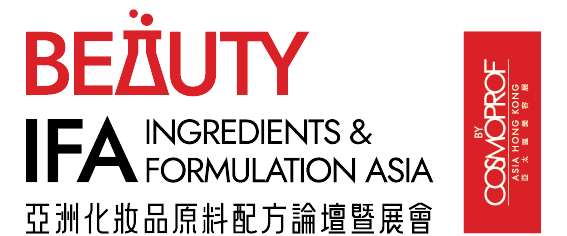Ethical Sourcing Revolution Reshapes Beauty Formulation

From Farm to Face: How Supply Chain Integrity is Becoming the Heart of Cosmetic Innovation
Subscribe to BIFA Weekly & Insights: Unlocking Beauty with Science, we warmly invite you to attend our Beauty Ingredients & Formulation Asia (BIFA) in 11-12 November 2025 AsiaWorld-Expo, Hong Kong. The symposium will feature top speakers who will delve deeply into various frontier topics within the cosmetic ingredients and formulation field.
Executive Summary:
The beauty industry is prioritizing ethical ingredient sourcing as a core R&D strategy. Driven by conscious consumers and regulatory shifts, brands are investing in traceable supply chains, fair-trade partnerships, and biodiversity conservation. This transformation impacts formulation science, packaging design, and consumer transparency, turning sustainability into a competitive formulation advantage.
Introduction:
The $104.7B beauty industry faces a paradigm shift: sustainability is no longer a marketing afterthought but a formulation imperative. With 68% of consumers demanding “clean” beauty and 55% willing to pay premiums for ethical products, brands are re-engineering supply chains from the ground up. This movement transcends “greenwashing,” requiring radical transparency in sourcing botanicals like shea butter, baobab, and adaptogens. Beyond ethics, this approach enhances ingredient efficacy—wild-harvested plants from biodiverse regions show up to 51% higher antioxidant activity. As climate change threatens traditional sourcing regions, R&D teams are partnering directly with farming communities to future-proof their pipelines.

1. Consumer Demand Driving Ethical Science
- Transparency as Standard: 59% of consumers now prioritize “natural and organic” claims, prompting brands like Walmart to launch dedicated clean beauty platforms with 900+ vetted products. Formulators must now document ingredient journeys from seed to serum.
- Efficacy-Ethics Nexus: Wild-harvested botanicals (e.g., Ghanaian shea butter) demonstrate superior skin benefits due to harsh growing conditions that boost protective phytochemicals. Brands like Formula Botanica highlight cooperatives ensuring fair wages while preserving traditional extraction methods that maintain bioactive integrity.
2. Tech-Enabled Traceability Systems
- Farm-Level Authentication: GPS-mapped baobab trees in Africa ensure harvests don’t exceed regenerative capacity. Sensors track soil health metrics linked to final extract potency.
- Consumer-Facing Verification: QR codes on packaging reveal ingredient origins, carbon footprint, and fair-trade certifications. Drunk Elephant’s blockchain initiative reduced supply chain fraud by 32%.
3. Biodiversity as a Formulation Strategy
- Climate-Resilient Botanicals: Drought-adapted species like South African Sceletium tortuosum or Australian desert lime deliver novel actives for barrier repair. Their extreme survival mechanisms translate to skin stress resistance.
- Crop Diversity Programs: Brands fund genetic banks preserving heirloom varieties. Givaudan’s partnership with Amazonian tribes safeguards 120+ medicinal plants, yielding new peptide alternatives.
4. Ethical Sourcing Challenges & Solutions
- Greenwashing Crackdown: Regulatory bodies now require proof for terms like “sustainable” or “wildcrafted.” The EU’s upcoming Green Claims Directive (2026) mandates third-party verification.
- Fair Partnerships: Baobab oil (predicted top 2025 ingredient) exemplifies ethical economics: cooperatives like B’Ayoba pay harvesters 30% above market rates while funding schools. Formulators benefit from enhanced oil stability and high vitamin E content.
5. Future Frontiers
- Lab-Grown Bioactives: Biotech firms like Algenist use fermentation to replicate rare botanicals (e.g., Alguronic Acid from microalgae), reducing land use while standardizing potency. This approach boosts collagen production 35% in clinical studies.
- Indigenous Knowledge Integration: Ethnobotanical research partnerships, like Twelve Beauty’s work with Andean Bidens pilosa, validate traditional remedies as natural retinol alternatives. These projects include royalty-sharing models.
If you are interested in unlocking Beauty with Science, we cordially invite you to attend BIFA. Top industry experts will provide comprehensive insights into new trends and information regarding cosmetic ingredients and formulations.
Contact us now for more details about the Beauty Ingredients & Formulation Asia (BIFA)!
Notes:

